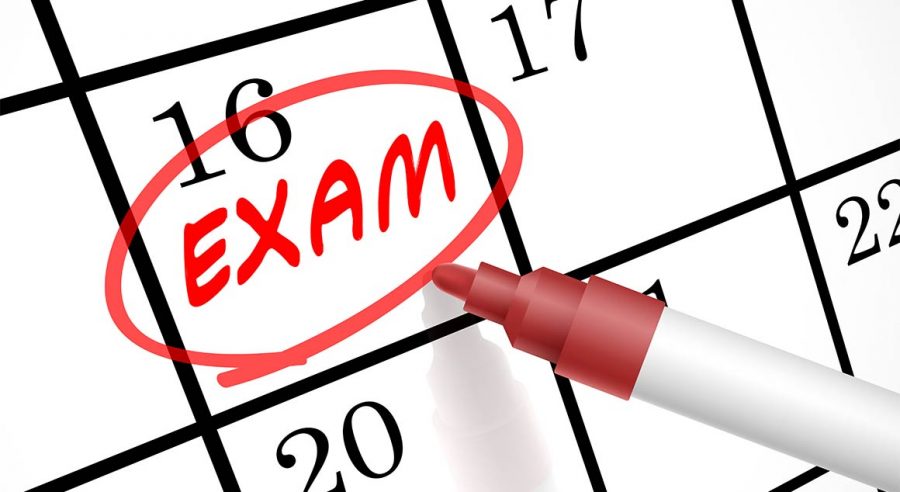7 Tips for Preparing for Midterms
January 13, 2016
With midterm exams looming around the corner, many students are feeling the all too familiar dread and panic associated with this wonderful time. However, exams need not be so stressful; by following these 7 tips, hopefully you will feel more prepared and less anxious.
- Gather together materials for an overview.
Before you begin studying, make sure that you have all of your materials. Consider keeping a folder or binder for each subject where you store all previous tests, quizzes, papers, notes, and other handouts. Then briefly skim through the material, referring to a study guide if your teacher has provided one, and mark any concepts that you do not easily understand.
- Ask teachers for help.
If there are any concepts that you do not understand on your own, consult your teachers, since they do know the material more than anyone else (plus, they have firsthand knowledge of the exam itself). Attend review sessions during the exam days if you have any additional questions. It might also be a good idea to consult outside sources if you are still confused; Youtube channels like CrashCourse, Tom Richey, and many others have short videos that summarize large concepts. Sometimes, just hearing the information from someone else can help you grasp the bigger picture.
- Choose your environment wisely.
Pick a spot where you can be comfortable while you study yet still remain focused. This will vary for everyone’s personal preference, but choose one that works best for you, whether that’s at the library, at home, or a coffee shop. Make sure that there is not so much noise that you can’t concentrate. Ideally, ensure that you are isolated as well so you won’t get easily distracted. Get rid of other distractions as well, namely electronic devices unless you are using them to study.
- Manage your time.
It’s important to manage your time wisely as exams come up. For the best efficiency, study in sessions with frequent breaks in between. 50 minutes of studying with a 10 minute break in between is one idea, but adjust it to whatever works best for you. Additionally, separate studying all of your subjects to one or two per day.
- Actively recall information.
Do not make the common mistake of passively skimming over your notes. At worst, you will not remember anything; at best, you will only catch a few words, but miss out on important, larger concepts. Instead, engage in techniques that require you to actively use your mind. For math classes, this might include practice problems. For English and history classes, outlining books or time periods can help. Additionally, for both of these classes, try teaching the information to other people or to an imaginary class. It has been proven that saying information out loud increases memory retention.
- Take care of your body.
This is probably the most overheard yet least followed advice out there, but it is absolutely vital that you take care of your health leading up to exams. Although it is tempting to stay cooped up in your nice studying environment all day, take a break and get some form of exercise. It could be something as simple as a walk or jumping jacks in your room. Don’t resort to junk food or energy drinks during your studying frenzy, but instead fill up on whole, unprocessed foods. Last of all, get adequate sleep. Not only will you feel more refreshed and alert during the exam, but you will remember the information better. And of course, the all nighter is not an option.
- Don’t freak out.
Most importantly, do not freak out. If you are feeling panicked and anxious, stop and take a deep breath. Remember that exams are only a temporary obstacle in the grand experience of high school, and your grades do not define you. No matter how well you do on your exams, you will continue breathing and the world will continue moving on. So just relax, and do not fear. You are going to do fine.







